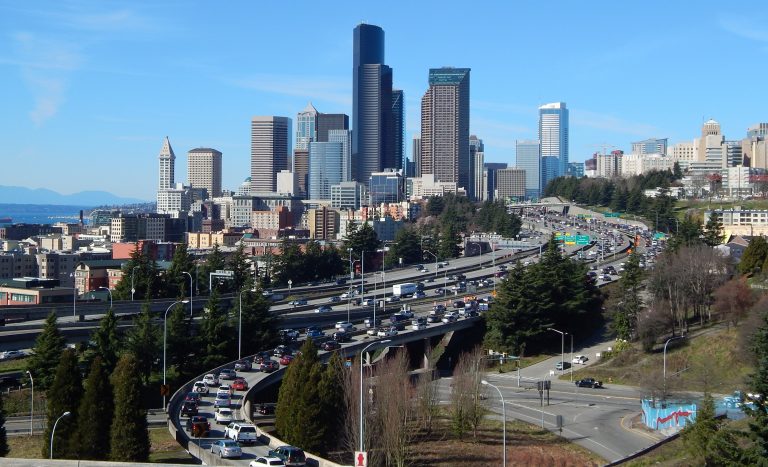Published on October 26, 2020

Never in recent history have more Washingtonians needed a strong social safety net. In April, as the COVID-19 pandemic shut down whole industries, over half a million workers in our state lost their jobs. Suddenly, they and their dependents needed help to cover life’s basic expenses, from rent and utilities to food and medical care. No doubt some turned to friends and family, and others to private charity. Most, however, relied on the constellation of public programs that constitute our social safety net: unemployment insurance, basic food assistance, Medicaid and Temporary Assistance for Needy Families, among others.
But there’s good reason to believe that, even before the pandemic, a growing part of our state’s population was struggling to survive without a social safety net. This isn’t obvious at first glance. Last year, in fact, Washington state’s official poverty rate dipped below 10% for the first time this century. But the federal poverty level is an abysmal measure of economic well-being.
A more illuminating metric, the Self-Sufficiency Standard – developed by University of Washington School of Social Work professor and director of the Center for Women’s Welfare, Diana Pearce – aims to define the income necessary to meet basic needs without public or private assistance. This year, a family of two adults, one preschooler and one school-age child living in King County needed just over $86,000 to cover basic expenses — more than triple the federal poverty level. The standard varies widely by household composition and locality, making statistical analysis challenging. But between 2001 and 2020, the average income needed for that family to live without help in Washington state rose at a faster clip (72%) than both regional inflation (54%) and workers’ median earnings (60%), a divergence driven mainly by the rising costs of housing, health care and child care.
Contrary to official poverty statistics, this suggests that the part of our state’s population in need of a social safety net has been growing since the turn of the century, even as that net has frayed.
All of this has consequences for our democracy. Marcy Bowers, executive director of the Statewide Poverty Action Network, describes a self-fulfilling prophecy: Many people without economic stability don’t participate in political life because they don’t feel the system can work for them.
Continue reading at Crosscut.
Originally written by Katie Wilson for Crosscut.